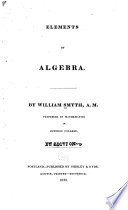 | William Smyth - Algebra - 1830 - 278 pages
...6 = 05, c = bq = aq', d = cq = aq3 from which it will be readily inferred, that a term of any von A whatever is equal to the first term multiplied by...number of this term ; from what has been said, we have £= aqn~*' This is called the general term of the progression. By means of it we may find any term... | |
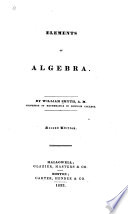 | William Smyth - Algebra - 1833 - 288 pages
...represented by q ; from the nature of the progression, we have, it is evident, b = aq, c = bq — aq2, d = cq = aq3 from which it will be readily inferred,...first term multiplied by the ratio raised to a power, thp, exponent of which is one lisa than the number, which marks the place of this term. Let L designate... | |
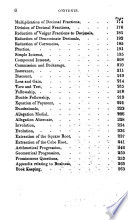 | Charles Davies - Arithmetic - 1833 - 284 pages
...&c. for the other terms. But 2x2=23,2x2x2=23, and 2x2x2x2=2*. Therefore, any term of a progression is equal to the first term multiplied by the ratio raised to a power" 1 less than the number of the term. CASE I. § 230. Having given the first term, the common ratio,... | |
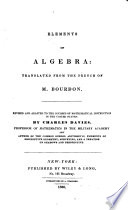 | Charles Davies - Algebra - 1835 - 378 pages
...find the values of all those which precede it. That is, the last term of a geometrical progression is equal to the first term multiplied ' by the ratio raised to a power whose exponent is one less than the number of terms. For example, the 8lh term of the progression 2... | |
 | William Smyth - Algebra - 1836 - 288 pages
...be represented by q ; from the nature of the progression, we have, it is evident, b = aq, c=bq=aq*, d = cq= aq3 from which it will be readily inferred,...of this term ; from what has been said, we have L = aqn~l Thus let it be required to find the 8th term of the progression -jf 2 : 6 : 18 . . . in this... | |
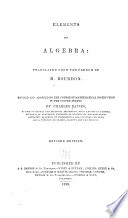 | Algebra - 1838 - 372 pages
...obliged to find all the terms which precede it. That is, the last term of a geometrical progression is equal to the first term multiplied by the ratio raised to a power whose exponent is one less than the number of terms. 1. Find the 5th term of the progression 2 : 4... | |
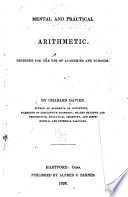 | Charles Davies - Arithmetic - 1838 - 292 pages
...the other terms. But2x2 = 22, 2x2 x 2 = 23, and 2x2x2x2=2*. Therefore, any term of the progression is equal to the • first term multiplied by the ratio raised to a power 1 less ' than the number of the term. Q. In every Geometrical Progression, how many things are considered?... | |
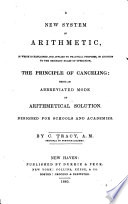 | Calvin Tracy - Arithmetic - 1840 - 316 pages
...3, 3 is evidently to be taken as multiplier, or factor, eleven times ; that is, any term of a series is equal to the first term multiplied by the ratio raised to a power one less than the number of terms. Thus, 2 x 3 x 3 x 3x3x3x3x3x3x3x3x3" = 3x2= 354294, Ans-. or twelfth... | |
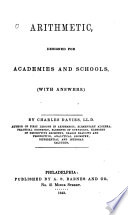 | Charles DAVIES (LL.D.) - Arithmetic - 1843 - 348 pages
...&c. for the other terms. But 2x2=22, 2x2x2=23, and 2x2x2x2=2*. Therefore, any term of the progression is equal to the first term multiplied by the ratio raised to a power 1 less than the number of the term. Q. In every Geometrical Progression, how many things are considered... | |
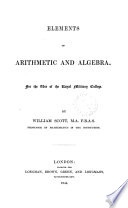 | William Scott - Algebra - 1844 - 568 pages
...1. Whence the exponent of q in any term is indicated by the number of preceding terms, and any term whatever is equal to the first term multiplied by the ratio raised to a power marked by the number of the terms which precede the term proposed. The formula l=aq~~l 1 is called... | |
| |